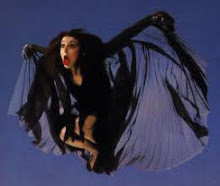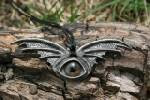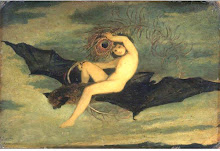 Jehanne La Pucelle, Maid of Orleans, Joan of Arc, Jeanne D’Arc, Jehannette, Maid of France, Maid of Heaven.
Jehanne La Pucelle, Maid of Orleans, Joan of Arc, Jeanne D’Arc, Jehannette, Maid of France, Maid of Heaven. Seer, Battle Maiden, Witch, Heretic, Martyr, Saint, Heroine.
January 6 1412- May 30 1431
"C'est pour cela que je fus nais." It was for this I was born.
Jehanne’s world was entrenched in the Hundred Years War, in which the succession to the throne was in dispute and French factions, royal insanity, adultery, kidnapping, assassination were the drama of the day. France was divided internally, and English forces seized control of the north country. The battle raged over who would sit on the French throne, Charles VII or Henry VI, and things did not look good for the French.
Thirteen year old daughter of lower class landowners, Jehannette began to hear voices of Saints who told her she must see that Charles VII, Le Dauphin, accede the French throne. At the age of sixteen, urged on by the word of God, she took action and managed to get a kinsman to escort her to a nearby garrison where she tried to convince the commander to permit her to visit the French court at Chinon. Denied, but she could not ignore the Lord's command; her second petition contained a prediction of an upcoming military outcome. When her prophecy was realized, she was escorted to court.
She actually was granted an interview with Le Dauphin, who had her examined by theologians in order to verify her authenticity. They counseled Charles to heed the teenage girl. What kind of person was this who could undergo questioning by a commission of ecclesiastic men for weeks and walk away with their support and confirmation of her morality? What desperate days and times, what unusual circumstances, what desire to believe and be saved; they were looking for magic.
Against all modern day rational thinking, Jehanne was sent to the front lines. She armored herself and inserted herself into war councils, managing to lead small armies of villagers and common soldiers when the military refused to support her aggressive tactics or even take her seriously. And she began to succeed. Suffering an arrow wound, and blow from a canon ball, she never lost courage. Amazingly, she persuaded Charles VII to give her co-leadership of the army. May I remind you that this is an uneducated farm girl in her teens with no military training, neither physical nor strategic.
Well, The Maid of Orleans plowed through France, regaining control of various places, her eye and mind on Reims, for to coronate Le Dauphin as the angels urged her on. She prophesied along the way, wrote letters to the French citizens and English overseers, and her words became truth. She spoke magic.
This dark haired girl stood under five feet tall. She was stocky and kept her hair cut short. She wore plain armor (it wasn’t actually “white” as stories like to say. White armor is a variety that is unadorned). She is quoted to say that she preferred to carry her standard (bearing the image of God, angels and the fleur de lis, the names Jesus and Maria) rather than her sword. But carry a sword she did, after remote viewing it hidden behind an altar in St. Catharine’s church and having it brought to her. At times it rested in a red velvet scabbard.
Having no training in swordsmanship, yet being in the front lines in battle, I imagine the Maid of France moved among the soldiers shouting encouragement, giving warning, interceding where she could, raising her standard of faith and creating powerful morale. She turned the tides. She made magic.
Jeanne D'Arc was captured when she was the last to leave the field in a skirmish. She refused to surrender. She attempted to escape her tower prison by jumping 70 feet. She was unharmed. She was brought to trial for heresy, and the English were determined to see her brought down. Obliterated.
Her trial was a travesty. The judge’s jurisdiction was in question, the appointed cleric could find no adverse evidence so a trial should not have been initiated. But it was. Jeanne was denied a legal advisor, even upon her demanding her rights. She frightened the English troops with her victories, her valor, and herself. They whispered of spells, witches, and magic.
The most renowned statement from the Maid of Heaven as recorded in the trial transcript demonstrates her brilliance: "Asked if she knew she was in God's grace, she answered: 'If I am not, may God put me there; and if I am, may God so keep me.'" Answering such she preserved herself from the question’s snare; had she answered yes, she would have convicted herself of heresy but if she had answered no, she would have confessed her own guilt. Later testimony from Notary Boisguillaume says "Those who were interrogating her were stupefied."
Further testimonies from several court functionaries indicate that significant portions of the transcript were altered to Joan’s discredit. Many clerics served under duress and English death threats, including the inquisitor. Joan’s pleas for ecclesiastical justice were denied and the illegal conditions and proceedings were upheld.
The court records were tampered with and there is contradiction in the court findings. Joan signed a renunciation document that she was unable to read (farm folk in those days were illiterate) because she was threatened with immediate execution, but a substitute was included in the court’s official record. Had she used up all her magic?
We know how the trial ended; The Maiden was convicted of heresy and her punishment was execution by burning. "Alas! Am I to be so horribly and cruelly treated? Alas! That my body, clean and whole, which has never been corrupted, should this day be consumed and burned to ashes! Ah! I would far rather have my head chopped off seven times over, than to be burned!" On May 30, 1431, she was tied to a tall pillar in the Vieux-Marche in Rouen, wearing a cross a local peasant made for her. She requested two clergymen to hold a crucifix before her. And the fires were lit. She called out the name of Jesus as she was consumed.
Such was the power of Jehanne that once the flames burned out the English raked back the coals for all to see that she had not escaped alive. Twice more were her remains burned so that no piece of her but ashes might endure. Then those ashes were thrown into the Seine. There would be no bodily relics of the Maiden, no lingering magic.
When the war ended a posthumous retrial opened. Testimony from 115 witnesses was analyzed. The Inquisitor-General declared Joan a martyr and implicated the late bishop presiding at her trial with heresy for having convicted an innocent woman in pursuit of a nonreligious feud. Joan was declared innocent in 1456.
Beatified in 1909, the Catholic Church said yeah, Joan went to Heaven. And if you ask her nicely, she’ll whisper in God’s ear on your behalf. Then in 1920 she was canonized and was declared Saint Joan, the Blessed Virgin. To be canonized you have to have “lived and died in such an exemplary and holy way that he or she is worthy to be recognized as a saint". I agree with how she lived, but I cannot abide the idea that her execution is categorized as exemplary or holy. There is no magic in that.
Called a lesbian because she dressed in armor as a military leader. Called schizophrenic because she had visions. Called a heretic because she followed God’s words to her death. Called a witch because she was burned by the church. Called a heroine of her country. This girl was a vessel to be sure, and we fill her with what we will. I am not French, nor Catholic, but Joan’s unerring faith in her god and her mission and her fate move me to greater thoughts than religion and country. I am reminded of certain indigenous tribes who sacrifice of themselves so that their people may live, and it is humbling. It is her timeless gift of magic.
The Thirtieth of May is the feast day of Saint Joan, this year the 578th anniversary of her death. I raise a glass to you, Jehanne La Pucelle. Blessed be.






















10 comments:
This is a great post! I never knew all this about her, so it was very informative. :)
A thoughtful and fascinating post! Thank you for writing it. Love what you're doing with your blog :)
Moved me to tears.
Wow. Fascinating entry on such a stunning woman. Why did you wait so long to start a blog, lady? Your writings are amazing.
Wonderful entry I find her facinating!
Brilliant post! I've always had a special place in my heart for this amazing woman. You certainly honored her with this post. By the way, I linked back to this post from my own blog.
I've always felt Joan of Arc was the perfect answer to people who think only the "normal" have a place in society. Look at her: she was undoubtedly not working with the same set of info as most people, call it visions or hallucinations; but that's why she could accomplish what she did. Think of what she might have done in a time when she'd have been allowed to read and learn and reach in her own way. Think of all the greatness we've lost to the institutions and the prisons.
If normal can't find a way to let exceptional happen, normal is pretty weak.
I love this Post, Joan of Arc was one of My two History Summer Projects at School. Along with the text, I can Remember doing a picture of her in a cell and another of her riding in her armour.
This was a wonderful read.
My other big history project was Tutankhamen.
Lindax
Wonderful tribute to St. Joan!
Blessings,
Ben D. Kennedy - Author of Maid of Heaven
I have long been fascinated and interested in the Maid of Orleans...this is an excellent post!
Post a Comment